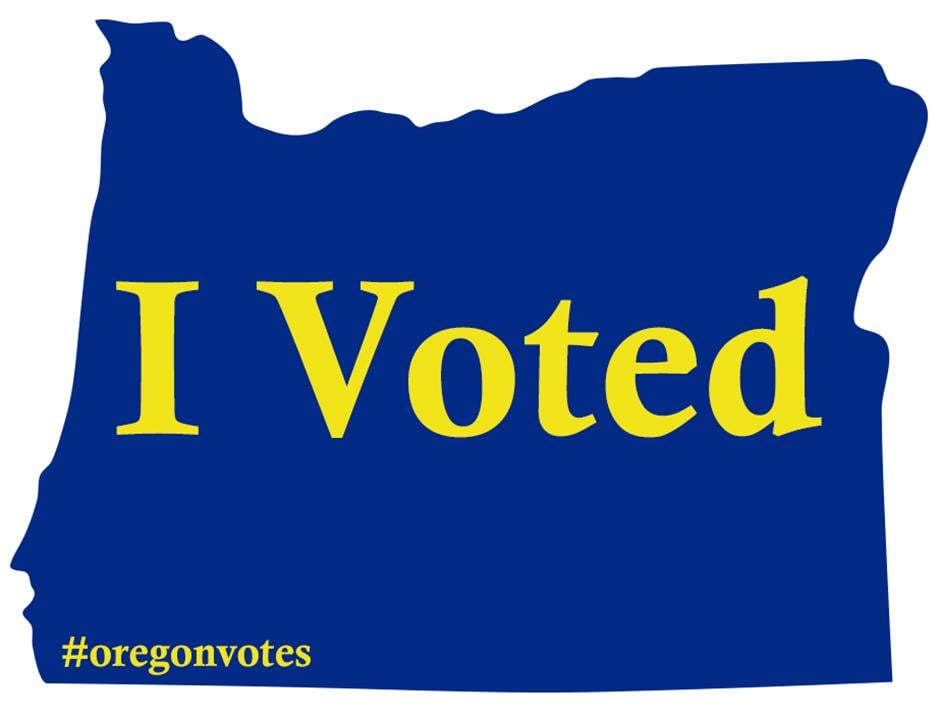- Fitted sheet must have label on bottom right seam
- Salted butter wrapping text must be red. Unsalted blue.
As someone who uses a Nintendo switch and an Xbox, the A and B buttons should be in the same place on all game controllers.
Fucking yes. @ArbitraryMary@lemmy.world for world president.
While I agree with the first thing, I’m concerned what someone with the name Arbitrary might do with more power!
What if they ban chocolate chips on waffles?? I’d be doomed!
No bans of chocolate chips on anything will ever be issued. You have my word.
I can get behind this one.
Packaging for supermarket products should have what the product is big and the branding small. Not the other way around.
Oh. Sound mixing on movies/tv shows should be such that voice lines are always perfectly audible even on shitty speakers. Make actors e n u n c i a t e like they did in the 30s. Christopher Nolan has a lot to answer for, turning all of media into mumblecore chief among those things.
I think all food packaging should be standardized and reusable, with a deposit system similar to reusable glass drink bottles (at least in Germany).
For instance: All the cereals should use the same returnable ‘cereal box’
Movies (and even most video games) make me so angry with that kind of stuff. You want an artificially tailored experience that only works with a zillion-dollar sound system? Fine, you can make it an optional soundtrack that only kicks in with those systems. But the default audio mix needs to be intelligible even on my phone’s speakers.
Video games are annoying because often you can’t hear anything over the explosions music during the opening cutscenes, but at least you CAN fix it in the settings. Movies, yeesh, you have to rely on your TV’s crap postprocessing.
The technology for this has existed for 20+ years and is actually fairly common. It’s often referred to as dynamic range compression. I think the chief complaint here is that it needs to be more accessible. Pre-applying it would mess up too many use cases.
Audio compression is much older than 20 years! Though you’re probably right about it becoming available on consumer A/V devices more recently.
And you’re definitely correct that “pre-applying” compression and generally overdoing it will fuck up the sound for too many people.
The dynamic ranges that are possible (and arguably desirable) to achieve in a movie theater are much greater than what one could (or would even want to) achieve from some crappy TV speakers or cheap ear buds.
From what I understand, mastering for film is going to aim for the greatest dynamic range possible, because it’s always theoretically possible to narrow the range after the fact but not really vice-versa.
I think the direction to go with OP’s suggested regulation would be to require all consumer TV sets and home theater boxes to have a built-in compressor that can be accessed and adjusted by the user. This would probably entail allowing the user to blow their speakers if they set it incorrectly, but in careful hands, it could solve OP’s problem.
That said, my limited experience in this world is exclusive to mixing and mastering music and not film, so grain of salt and all that.
I thought it would be simple: just make the mono/stereo/etc mixes easier to understand, and leave the advanced stuff to people with a million speakers.
I guess that’s too simple?
I would bet there is one mix created in surround sound (7.1 or Dolby Atmos or whatever), and then the end-user hardware does the down-mixing part, i.e. from Atmos with ~20 speakers to a pair of airpods.
In the music world, we usually make stereo mixes. Even though the software that I use has a button to downmix the stereo output to mono, I only print stereo files.
It’s defintely good practice to listen to the mix in mono for technical reasons and also because you just never know who’s going to be listening on what device—the ultimate goal being to make it sound as good as possible in as many listening environments as possible. Ironically, switching the output to mono is a great way to check for balance between instruments (including the vocals) in a stereo mix.
At any rate, I think the problem of dynamics control—and for that matter, equalization—for fine-tuning the listening experience at home is going to vary wildly from place to place and setup to setup. Therefore the hypothetical regulations should help consumers help themselves by requiring compression and eq controls on consumer devices!
Side tip: if your tv or home theater box has an equalizer, try cutting around 200-250hz and bring the overall volume up a tad to reduce the muddiness of vocals/dialogue. You could also try boosting around 2khz, but as a sound engineer primarily dealing with live performances, I tend to cut more often than I boost.
My TV is insulting like that. It technically has an EQ, but it makes no perceivable difference no matter what I do in it.
But assuming it worked, wouldn’t doing that strictly with sound frequencies cause issues? Like, okay, most voices are louder because I boosted their frequency, but now that one dude with a super low voice is quieter, plus any music in the show is distorted. Or something like that.
I wish they just provided separate tracks that you could control. One track for dialogue, one track for music, one track for sound effects, and maybe one track for less important voices. Then let us adjust the volume of each. That would help so much. And they basically HAVE to do it at some point in the process anyway if they want multilingual dubbing to work.
Speaking of dubbing: recently I’ve taken to watching more content dubbed in French strictly because it’s almost always intelligible, contrary to the aRtIsT aCcUrAtE volumes of the original. Pretty sad that I have to do that though.
My TV is insulting like that. It technically has an EQ, but it makes no perceivable difference no matter what I do in it.
What the hell!
But assuming it worked, wouldn’t doing that strictly with sound frequencies cause issues? Like, okay, most voices are louder because I boosted their frequency, but now that one dude with a super low voice is quieter, plus any music in the show is distorted. Or something like that.
Not necessarily. Regardless of vocal range, around 400hz-2000hz makes up the body of what you hear in human speech, or the notes for instryments carrying a melody. Below that, say, 160-315hz is going to be the “warmth” and “fullness” of the sound, while 2.5khz-8khz is going to be the enunciation and clarity (think ch-sounds, ess-es, tee-s, etc).
Sure, if you start really going hard on an EQ, you could absolutely throw everything out of balance — if you cut out 12db at 250hz, all the warmth will be gone and everything will sound thin. If you scoop a bunch of 400hz-1.6khz, it will sound like a walkie-talkie, and if you make a large boost around 3khz-8khz, then everything will probably sound harsh and scratchy.
This is where, the listening environment becomes important to consider. Do you live near a busy highway or do you have a loud air conditioner? You don’t need to answer these questions in public, but those kinds of ambient sounds can compete with the enunciation frequencies, or add to the buildup of “mud” in the lower part of the spectrum.
The size, shape, material properties etc. of your room and furniture also play a role here. For example, a bunch of bare walls and hard surfaces will cause a lot of the high frequencies to bounce around, potentially causing a buildup of harshness. This is why recording studios and your high school band hall probably have those oddly-shaped, cloth-covered wall “decorations” that serve to neutralize the cavernous sound you’d get in a large, bare room.
Overall, compensating for the environment is where you should probably aim your EQ. That is, even if source material varies wildly, it’s probably best to try to EQ to the room you’re in rather than each, individual program.
The way to do it is to find a song you know by heart, that you know how it sounds in the best way possible (there are a few that, to me, sound great in my car and on my favorite pair of headphones, so I use those), and play that through your TV. Then, fiddle with the EQ until it’s as close to the ideal sound in your head as you can get it.
It may seem slightly above inconsequential, but parking. Parking is a great example of arbitrary rules having longstanding effects. (Really neat video on parking regulations - https://www.youtube.com/watch?v=OUNXFHpUhu8)
As for more inconsequential. Leafblowers Leafblowers immediately banned unless they are
- Less than 20db
- Zero emission
- ONLY USED AFTER 9AM WHY IN GODS NAME ARE YOU LEAF-BLOWING AT 8AM ON A SATURDAY
So 10 times quieter than a silent room?
They need to suck sound out of the environment
/s
They said regulate, it’s up to the industry to create a compliant product
It must be quieter than the sound of a leaf hitting the ground!
Oh no… Guess we can’t have leaf lowers anymore… Shame…
Can we have leaf highers?
WHY IN GODS NAME ARE YOU LEAF-BLOWING AT 8AM ON A SATURDAY
These people are usually the sorts who rise at 5am regardless of day and have become bored after 3 hours awake. If they think about it at all, they believe that everyone who is not yet up by 8am is a fool who ought to be out of bed, thus that is the perfect time to make noise.
As to why they rise at 5am, take your pick from: i) Old and unable to sleep for long periods - Will be asleep again in an armchair by 11am once they’ve gone back inside; ii) Military bearing or wannabe - Probably has reveille.wav for an alarm; iii) Abject a-hole who gets a kick out of it. Honourable mention: iv) someone with no choice under direction from one of the above.
You forgot v) collaborates internationally for work, requiring them to be awake early to maximize overlapping hours in their workday.
But even I know not to do noisy shit outside until at least 10. Those few quiet hours in the morning where it seems I’m the only person alive are to drink coffee and cherish.
Never live in the japanese countryside. Work starts between 5 and 6am every day (sunrise is before 4:30am at it’s earliest where I live). By 9am in August, it’s already getting ridiculously hot for working outside.
All shoe and clothing companies must use universal measurements and sizes
Laptop keyboard layouts. There is no reason they should be so different.
Specifically, those laptops that have full-sized left and right arrows, but half-sized up and down arrows - those earn 1 week of jail time for the CEO per unit sold.
While we’re at it, the power button must be in the same place on all laptops.
Adding a copilot button to a laptop, 10 years jail
no trial
I just want every keyboard to have a home and end button (I’m a coder, and my current keyboard doesn’t have them, and I have to set a binding in every. single. thing.)
International standard paper sizes (A4 etc.) in the U.S.
Metric units aka SI units aka sanity
I assumed it was global… What do you use in the US?
A pretty-much arbitrary system based on a standard letter size of 8.5 in x 11 in, with multiples and fractions thereof. It lacks the critical √2 aspect ratio, so pages designed for one size have the wrong proportions when scaled up or down.
That sounds like a massive pain in the backside.
No, it promotes Freedom™.
Sports teams that change cities must also change names.
No more “Utah Jazz”.
https://en.m.wikipedia.org/wiki/Utah_Jazz
Similarly, cable channels that veer from their original content must also change their names. Mtv hasn’t been Music Television in decades.
Sounds like you want trademark reform.
There are basically no requirements for maintaining trademarks. If a company owns a name they can use that name and branding forever, no matter how false it becomes, no matter how much the business or product changes, they can keep the name. This shouldn’t be the case.
If an ice cream company is named after their two founders, the company shouldn’t be able to keep using their names after they’re no longer involved. But under current laws they can.
A glass company can build its reputation on making heatproof glass, then change the glass so its no longer heatproof, while still selling it under the same name. This is unjust.
Companies should be forced to rebrand upon major changes. Current trade mark laws are fundamentally misleading.
The point of trademarks is to avoid market confusion.
MTV didn’t instantly eliminate all of it’s programming and created new programming overnight. They had reality TV shows playing alongside music videos in the 90s. There are some people that might like a reality show that was on MTV when they were playing music videos, then suddenly the name of the company changes because they don’t play music and those people can’t find the show they like? Even though it’s still on, still being made by the same company, but under a different name because curmudgeons don’t think it’s appropriate that a company with the letter M in it’s name isn’t focused on music?
Trademarks are about people being able to know which company they’re buying from. The name of the company is relatively arbitrary. You could start a company making computers and give it an arbitrary name like I don’t know “Apple”. then people will associate the quality of the computers with that arbitrary name “Apple”. Well you could if someone didn’t do exactly that already. It’s not so much the name it’s the consistency that matters most.
And many names we just kind of forget their origins because they’re irrelevant to what the company now does. Does Motorolla have to change it’s name because they no longer make record players for cars? Does DC have to rebrand because very few of their comics are about detectives? KFC can’t call themselves that because a vast majority of their restaurants aren’t in Kentucky?
I’d actually go the other way if anything. Make it illegal for a company to change it’s name. Facebook promotes eating disorders to teenagers? Sorry you aren’t changing your name to Meta, you can’t do bad shit and erase that negative brand association by re-branding. You want your brand to be considered good? Then do better.
every date MUST be in RFC 3339 format. e.g. 2024-09-08, with optionally the time: 21:41:24+02:00
and hell no not ISO 8601 cause then people would use stuff like 2024W154
Thank you! Also nobody wants to buy a copy of an ISO standard
I think that ISO 8601 is available for free. But agreed that the RFC version is superior.
Would you allow long dates?
For example, Jan. 11, 2022, or 7 September 2010.
no, for cross-language interoperability. ok I just noticed that this breaks other calendar systems but well
Broadcasting audio from a personal device in public should be a misdemeanor.
Especially hiking trails
Having a conversation with a voice assistant in public should be a minor felony.
To branch off from this, can i be the regulator for anyone using speaker phone in public/shops for 1v1 conversations by holding the phone next to their face to talk and walking around.
Print the food expiration date above the label barcode. Black ink on white background.
Honestly ANY standard would be an improvement over the current reality.
Expiration date see:
the back of your own head
Seriously, I feel like one of those Rubik’s cube champions looking at my yoghurt from all possible dimensions trying to find out if it turned to cheese or not.
I would go with: Remove expiration dates entirely. Because it’s not an expiration date, it’s a “best before” date. Which when you think about it, it’s true that food is “best before” literally any future date you put on the label.
Most of the factors that will cause food to spoil are things not under the control of the companies that package the food. How cold do you keep your fridge at? How long did it take for you to transport the food from the store to your fridge? What was the temperature that day? How long did you have it before you break the seal and start using it? How long was the food outside of your fridge? etc. etc.
Those things are just invented by a marketing department to encourage people to throw out food so they have to buy more. There are no regulations on it, they just put whatever date they think will maximize their profits.
You buy fresh fruit and vegetables (the things that will spoil faster than anything else you buy) there is no expiration date. How do you manage? Look at it, and maybe give it a smell test. The same applies for all food really.
“Best before” dates are a scam that results in food being thrown out prematurely. Grocery prices are too high, we shouldn’t allow these kinds of shenanigans to drive prices higher.
Please don’t die from this advice.
First: Yes, best before dates are sometimes arbitrary depending on the product and where you live. However, basically anything with a package sold commercially has been tested for taste/feel/look over time to determine when quality degrades. If you make cookies you don’t want people only buying up 1+ yr old boxes and thinking your cookies are just supposed to taste like solidified disks of keyboard powder. Having a best before date tells people when your product tastes as intended and when it’s only worth buying from the discount bin.
It’s fair to say sometimes marketing bullshit influences that date.
Second: Expiry dates are a real thing, at least where I’m from. Fridge/freezer temperatures are meant to be within specific ranges and there are food safety regulations around how long certains items can be outside of those ranges - like for transport or during prep.
Expiry dates are based on testing the development of bacteria colonies/degradation of the ingredients in an average of settings one would expect those products to go through.
Just because something says it’s expired doesn’t necessarily mean it’s unsafe, though. Except: in a commercial kitchen it is illegal to sell expired ingredients because of the testing that goes into determining that date.
I’ve worked as a chef, have taken multiple food safety courses, had good relationships with food inspectors. And I’ve worked in a production kitchen where the products were sent to testing facilities for determining the dates we put on the labels.
The expiration date isn’t for the customer. It’s for the grocer. They should not be allowed to sell expired food.
They should be allowed and required to give away or offer for donation any food that is still edible after its expiration date.
By all means, eat all the expired food you want. I certainly do. Just don’t try to sell it to anyone and we’re golden.
TV remotes, computer speakers, car radios, etc must have two sets of volume up / volume down controls. One for upper volume limit, and one for the lower.
Now I can hear what the characters are whispering to eachother, without waking up the entire apartment complex when there’s a gunshot on screen.
Or hear the quiet parts of music when I’m driving without blowing my eardrums out when the contrasting high energy part kicks in.
That’s called a compressor and you could run your stereo through one or use a mobile app to do the processing on your phone.
If you have a surround setup, try boosting only the center speaker. Dialog is usually played through that.
Someone else mentioned a compressor. If your tv/hifi has a night mode, it’s doing that exact thing.
The number of hotdogs in a hotdog pack and the number of hotdog buns in a hotdog bun pack cannot be coprime
The number of hotdogs in a hotdog pack and the number of hotdog buns in a hotdog bun pack cannot be coprime
(Although 8 and 12 aren’t coprime, and he tears open three bags of buns, meaning if he had just bought three packs of hot dogs and two bags of buns he’d be fine.)
“Coprime” is the operative qualifier of the original comment. You can’t do what Steve Martin did with coprime amounts of buns and dogs because they can never evenly go into one another. You’ll always have leftovers.
“Coprime” is the operative qualifier of the original comment.
I did say that 8 and 12 weren’t coprime.
You can’t do what Steve Martin did with coprime amounts of buns and dogs because they can never evenly go into one another. You’ll always have leftovers.
That isn’t true. You can do EXACTLY what he did. If he had packs of 8 hot dogs and 9 buns, removing one bun from each pack would have the same effect. And 8 and 9 are coprime.
And you can also do what I said he could’ve done, that is, get an even number of hot dogs and buns by purchasing different amounts of packages. If someone purchased 9 packs of 8 hot dogs and 8 packs of 9 buns, they would even out.
You can ensure any two coprime integers go into another number evenly by simply making them factors of the other number (in this case, 72).
Edit: fixed a typo
Women’s clothing now have the same definition for what is xs s m l xl and etc
under my brutal dictatorship, laptop power buttons may not be a key on the keyboard. It must be a separate button elsewhere on the chassis.
and a physical connection, not primarily software driven
If you do any industrial processing step which creates something harmful for the environment, your company is responsible for undoing that step after nobody wants the result any more.
This creates an incentive to recycle and build stuff to be able to deconstruct it’s components. Less stuff in the landfills and more raw materials for recycling.
Let the consumer bear the cost by paying the real price of a product and not mother nature.
You’re correct but that’s very consequential and OP asked for inconsequential


















